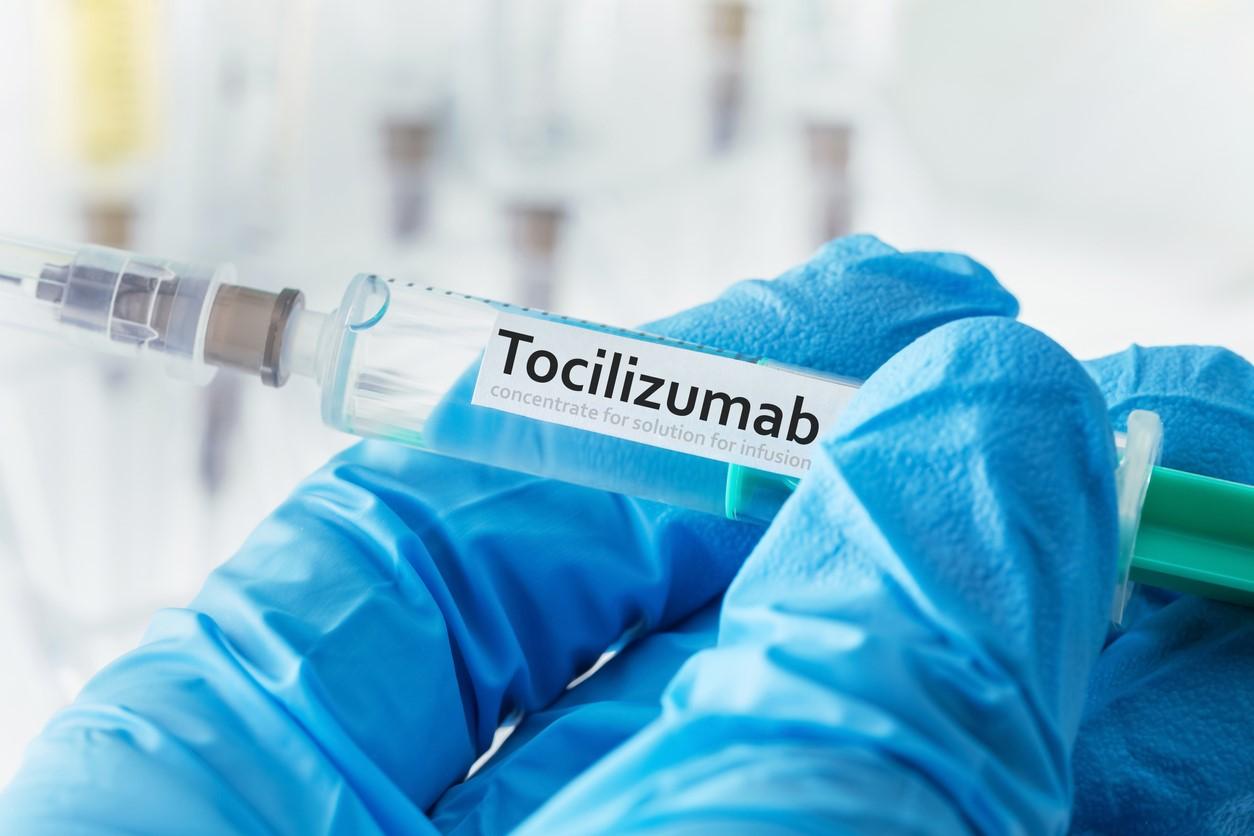Tocilizumab, like other potential COVID-19 drug treatments, is in spot shortages around the world.
In India, it's being allocated to states by the government. The UK National Health Service allows patients to receive only one dose. And in Canada, whose use of the drug was the spotlight of a CMAJ analysis yesterday, it's considered to be in tier 3 shortage, a status reserved for potential COVID-19 drugs that allows them to be withheld owing to scarcity.
Canada's shortage could cause supply and demand issues, according to the researchers. They estimate that, if the drug is proven to reduce in-hospital mortality, 42.9% of hospitalized COVID patients in Canada and 40.9% of hospitalized COVID patients in the United States could benefit from treatment.
Currently the monoclonal antibody drug is used chiefly to treat rheumatoid arthritis.
"Expecting drug manufacturers to increase the supply of all candidate therapies or healthcare providers to stockpile inventory before drugs are proven effective would be unreasonable," the researchers write. "Thus, when a new drug is shown to be effective, there will likely be at least a temporary shortage of supply unless it is already widely available."
Previous studies used to calculate eligibility
The researchers gathered data from 820 COVID-19 hospital admissions across six hospitals in Canada from January to June 2020 and compared patient records with eligibility criteria from the Randomized, Embedded, Multifactorial Adaptive Platform Trial for Community-Acquired Pneumonia (REMAP-CAP) and the non–peer-reviewed Randomised Evaluation of COVID-19 Therapy (RECOVERY) trial.
About 32.7% of COVID-19 patients were eligible under the REMAP-CAP guidelines, which had opened the drug to those critically ill and needing cardiovascular organ support or high-flow oxygen therapy. Under RECOVERY trial methods, which restricted its study to patients who needed oxygen therapy and had high C-reactive protein levels, 42.4% of patients in this cohort would have been eligible.
Using these data, the researchers estimated the potential demand nationwide in Canada (42.9%) and the United States (40.9%) and found it comparable to the RECOVERY's results in the United Kingdom (about 49%).
The researchers further extrapolate that if tocilizumab is able to prevent deaths and ventilation 12-plus hours after admission, it could prevent 17 deaths and 12 invasive mechanical ventilation procedures per 1,000 adults hospitalized with COVID-19 (95% confidence interval [CI], 5 to 27 and 3 to 20, respectively).
One manufacturer for all of Canada
Regardless of tocilizumab's efficacy, in mid-March, almost 30% of representatives from 20 Ontario hospitals said they needed additional supplies. In the same survey, researchers also found that institutional COVID-19 use varied, and that 15 patients did not receive treatment either because of supply or policy limitations that week.
Tocilizumab is only manufactured by Hoffman-La Roche (also known as Roche, based in Switzerland), the analysis reports, although news of a technology transfer agreement with Novartis surfaced at the end of April. While Roche says Canada received 3,100 doses in March and April, the researchers say that if Ontario's third COVID-19 wave is as strong as its second, 3,000 patients could be eligible for the drug in that city alone.
Most tocilizumab regimens are a single dose between 400 and 800 micrograms, although the researchers say that 29% of patients in the RECOVERY trial received multiple doses.
Regarding drug supply management, the researchers point to guidelines that the Ontario COVID-19 Bioethics Table adapted from existing provincial framework. First, healthcare providers must maximize supply and sharing to maintain the standard of care, which can involve near real-time monitoring and transparent, centralized procurement and allocation. If shortages persist, tocilizumab should be given only to those who have been shown to benefit in clinical trials, and it should be rationed or substituted for sarilumab as needed.
As a last resort for fair access, a process such as a centralized allocation lottery should be created for patients. The guidelines note that a weighted lottery may further support equity.
In a Toronto Star commentary by three authors of yesterday's analysis, they commend the Ontario Critical Care COVID19 Command Centre's situation management. They say the center has worked on increasing and optimizing supply with the federal government and the Ontario COVID-19 Science Advisory Table, respectively, and has worked closely with hospitals for appropriate allocation.
"This excellent example of system-wide leadership offers a road map for a more proactive strategy," they write. "Ensuring a stable supply of essential medications and equitable, evidence-based responses to drug shortages could be an important legacy of the COVID-19 pandemic."























